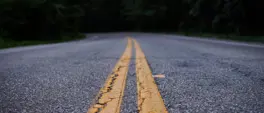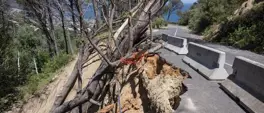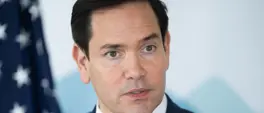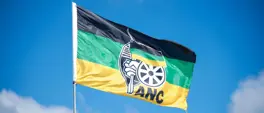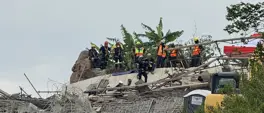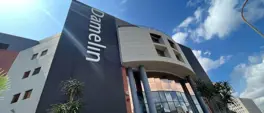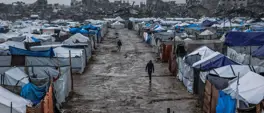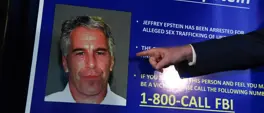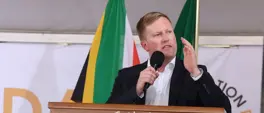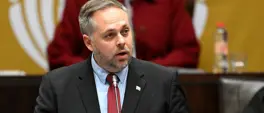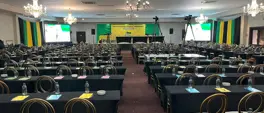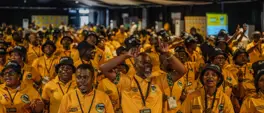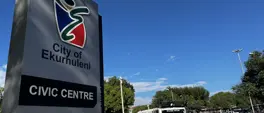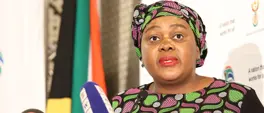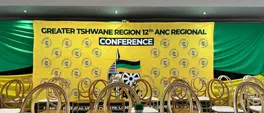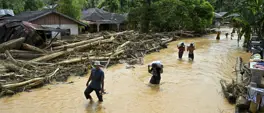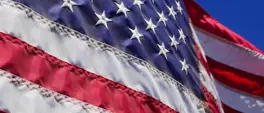European leaders in Kyiv for show of solidarity against Russia
AFP
10 May 2025 | 11:06Russian President Vladimir Putin rejected a 30-day truce proposed by Washington and Kyiv in March, instead declaring two brief pauses in fighting that Ukraine has accused Moscow of violating.
KYIV, Ukraine - The leaders of France, Britain, Germany and Poland visited Ukraine on Saturday for talks with President Volodymyr Zelensky, vowing to ratchet up pressure on Russia until it agreed to a ceasefire in the three-year war.
The four countries, part of an alliance Britain and France call "the coalition of the willing", said in a joint statement they were "ready to support peace talks as soon as possible".
The Kremlin has shown no signs of halting its invasion of Ukraine, despite US President Donald Trump pushing for a ceasefire. Moscow warned earlier there could be no truce unless the West halted arms deliveries to Kyiv.
Russian President Vladimir Putin rejected a 30-day truce proposed by Washington and Kyiv in March, instead declaring two brief pauses in fighting that Ukraine has accused Moscow of violating.
On his way to Kyiv, French President Emmanuel Macron said that, once a 30-day ceasefire was in place, there could be "direct talks between Ukraine and Russia".
Both Moscow and Kyiv have hinted they are open to negotiating with each other, but Ukrainian President Volodymyr Zelensky says this would only be possible once a ceasefire takes effect.
Russia now occupies about a fifth of Ukrainian territory -- including the Crimea peninsula, which it annexed in 2014 -- and intensified deadly attacks on the country this spring.
The US embassy in Kyiv said on Friday that a "significant air attack" could occur at some point within the next several days.
'Bloodshed must end'
Macron, German Chancellor Friedrich Merz, British Prime Minister Keir Starmer and Polish Prime Minister Donald Tusk arrived by train from neighbouring Poland.
It is the first time the leaders of the four European nations have made a joint visit to Ukraine.
They were later seen embracing Zelensky and joined him in placing lanterns at a memorial for fallen soldiers in central Kyiv.
For Merz, who took office only this week, it was his first visit to Ukraine as chancellor.
Macron had not been to Kyiv since June 2022, when he went with the Italian and German leaders of the time.
"We are clear the bloodshed must end. Russia must stop its illegal invasion," the leaders said in a joint statement.
"Alongside the US, we call on Russia to agree a full and unconditional 30-day ceasefire to create the space for talks on a just and lasting peace."
They warned: "We will continue to increase our support for Ukraine. Until Russia agrees to an enduring ceasefire, we will ratchet up pressure on Russia's war machine."
They were scheduled to host a virtual meeting to update other European leaders on moves to create a European force that could provide Ukraine with security after the war.
Such a force "would help regenerate Ukraine's armed forces after any peace deal and strengthen confidence in any future peace", the leaders' statement said.
Russia has said it will not tolerate any Western military presence in Ukraine once the fighting ends and has warned the proposal could spark war between Moscow and NATO.
'Advantage for Ukraine'
The symbolic show of European unity came a day after Putin struck a defiant tone at a Moscow parade marking 80 years since victory in World War II.
In an interview with the US news channel ABC on Saturday, Kremlin spokesman Dmitry Peskov said arms deliveries from Ukraine's allies would have to stop before Russia would agree to a ceasefire.
A truce would otherwise be an "advantage for Ukraine" at a time when "Russian troops are advancing... in quite a confident way" on the front, Peskov said, adding that Ukraine was "not ready for immediate negotiations".
Putin ordered a unilateral three-day truce from Thursday through Saturday. But a Ukrainian army brigade operating in the east told AFP earlier the intensity of fighting had remained "pretty much the same".
Europe and Ukraine argue more pressure is needed on Russia to respond.
After meeting Tusk in France on Friday, Macron called for the speedy drafting of a US-Europe plan for the 30-day truce that would be backed by "massive economic sanctions" if one side "betrays it".
European Commission President Ursula von der Leyen said in a post on X that a ceasefire was needed "without pre-conditions", and only then could there be negotiations.
Get the whole picture 💡
Take a look at the topic timeline for all related articles.
